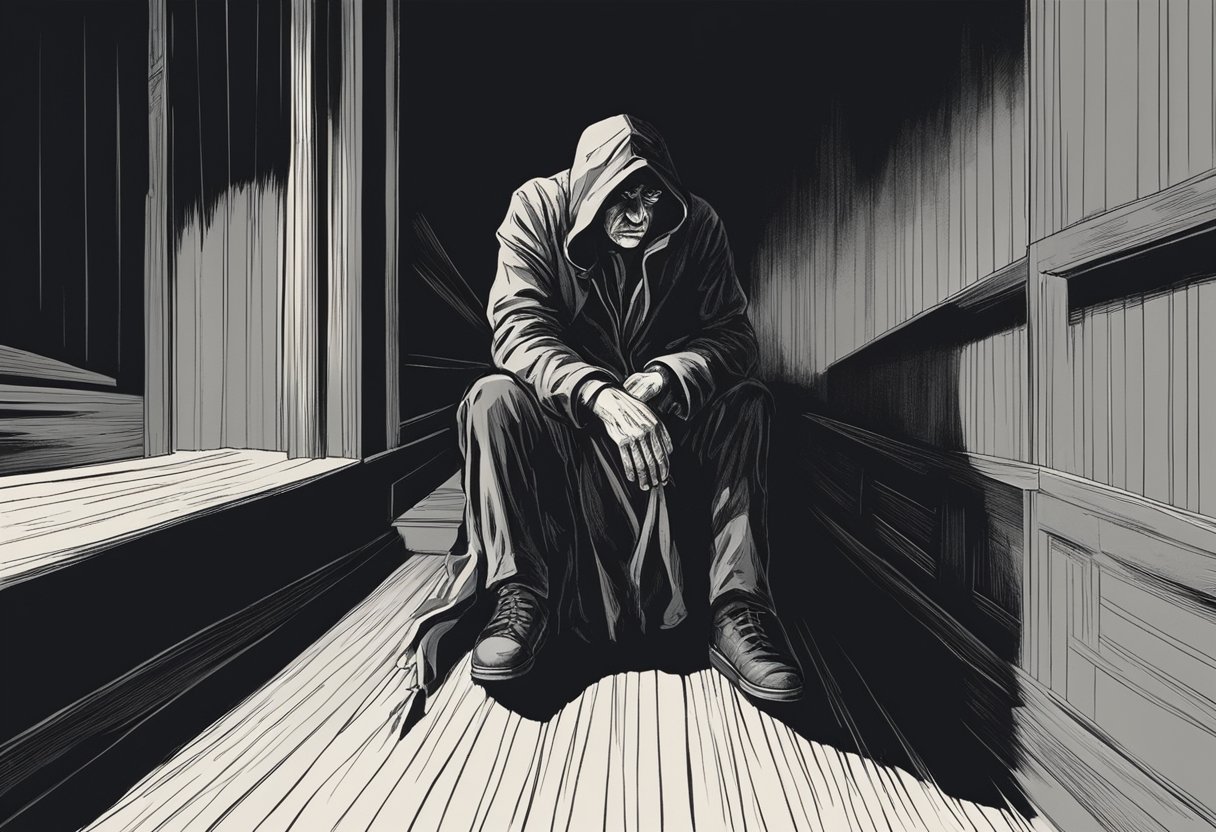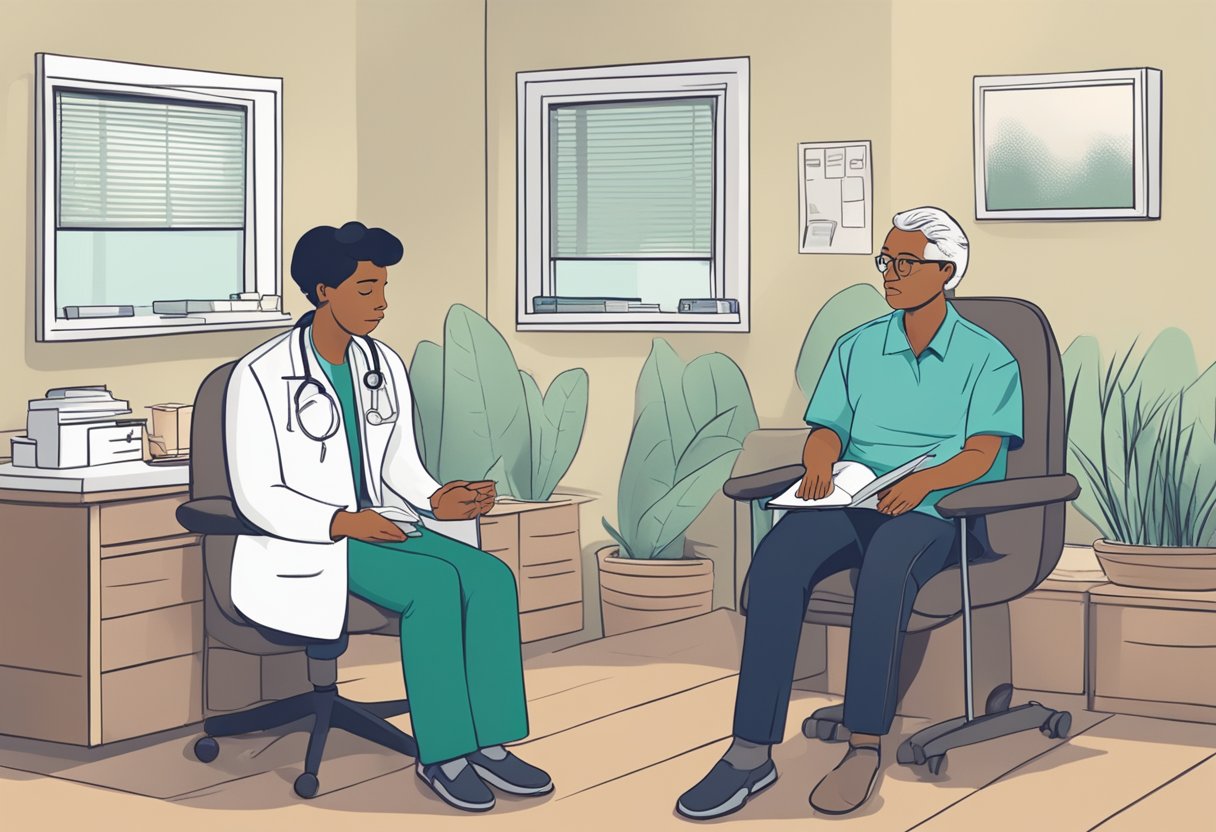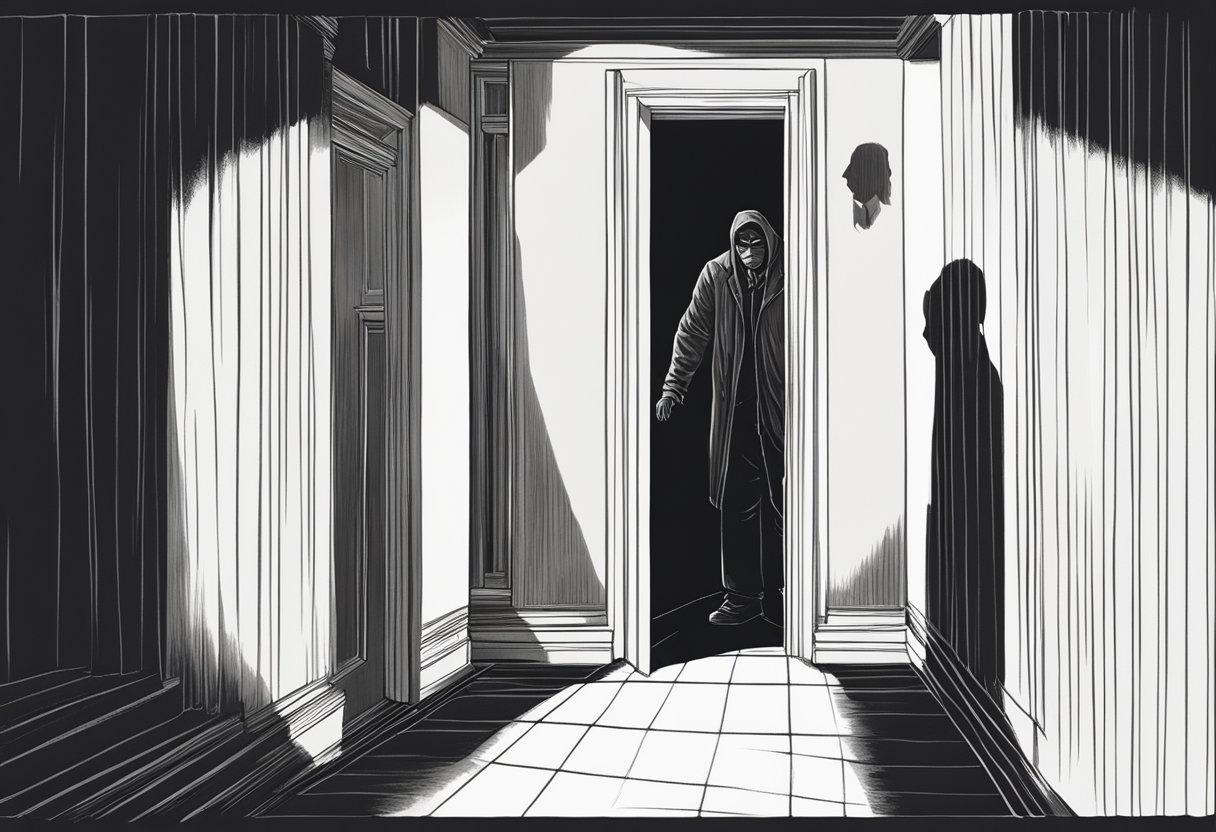Explore the psychology behind the fear of dying and gain insights on managing thanatophobia for a more peaceful mindset.
Table of Contents
Introduction – Fear of Dying
The fear of dying, or thanatophobia, is an anxiety disorder that involves a deep-seated apprehension about death and the dying process. This type of fear can range from a mild sense of unease about mortality to a crippling state of panic and dread that interferes with daily functioning. While it is natural to have some level of concern regarding the end of life, for those with thanatophobia, the fear becomes all-consuming. It can manifest in both psychological and physical symptoms. A person dealing with this condition may find themselves persistently contemplating their own mortality or experiencing intense distress when faced with reminders of death.

Understanding the root of this fear is complex, as it can stem from various factors including personal experiences, cultural backgrounds, religious beliefs, and biological influences. The impact of age and overall health also plays a significant role, as those who are younger or healthier may have different perspectives on death compared to older adults or those facing chronic illnesses. Addressing these fears often involves a multi-faceted approach, including psychotherapy to explore and manage the underlying causes of the anxiety. Furthermore, societal attitudes and norms importantly shape the conversation around death, with certain cultures viewing it as a natural transition rather than an occasion for fear.
Key Takeaways
- Thanatophobia transcends average worry, presenting as intense dread that disrupts daily life.
- Cultural, religious, and personal health factors contribute to the nuances of this fear.
- Treatment usually involves a combination of psychotherapy and confronting existential concerns.
Understanding Fear of Dying

Fear of dying, or thanatophobia, is a complex condition that affects individuals in varied ways. It encompasses not just a fear of death itself but also the dying process and the unknowns associated with it.
Defining Thanatophobia
Thanatophobia is an intense fear of death or the dying process. Despite being a natural aspect of life, this condition can significantly disrupt daily life. Distinguished from necrophobia, which is the fear of dead things or death-related paraphernalia, thanatophobia is more specific to the individual’s anticipation of their own death.
Symptoms of Thanatophobia
Symptoms of thanatophobia can manifest both emotionally and physically. Emotionally, individuals may obsessively worry about death or experience feelings of dread. The physical symptoms can range from a racing heart to sweating, also typical of a panic attack. This fear can be intense enough to provoke a real sense of urgency and desperation in an individual.
Common Causes
The causes of thanatophobia are as diverse as its symptoms. They can stem from a past trauma, a profound fear of the unknown, or a fear of loss of control over one’s life. The condition may also arise from a fear of pain associated with dying or concern over the impact of one’s death on loved ones. Acknowledging these common causes is paramount in understanding and addressing the phobia.
| Key Findings or Concepts | Relevance |
|---|---|
| Thanatophobia | Intense fear of death or dying process |
| Symptoms | Emotional and physical manifestations such as panic attacks |
| Common Causes | Trauma, fear of the unknown, loss of control, fear of pain |
Sources:
- Psychology Today on fear of death
- Understanding the Fear of Death
- Verywell Mind on Thanatophobia
- Healthline on Death Anxiety
The Impact of Age and Health

As individuals age, their perspectives on mortality and physical health can shift, influencing the levels of death anxiety they experience. These changes are often closely related to health conditions that are more prevalent in older age, which can affect one’s perception of death and mortality.
Age-Related Anxiety
Older adults may experience an increase in death anxiety as they face the inevitability of aging and the closer proximity to mortality. The fear of death tends to be higher among those who have a diminished sense of purpose or a lack of satisfying social relationships. On the other hand, some studies suggest that a decrease in death anxiety can accompany older age due to factors such as acceptance and the development of coping mechanisms.
| Key Point | Source |
|---|---|
| Older adults have varied responses to death anxiety | Fear of Death in Older Adults – Oxford Academic |
Health Conditions and Mortality
Both physical health and illness anxiety disorder, previously known as hypochondriasis, significantly affect one’s fear of death. Research indicates that better physical health is associated with lower levels of death anxiety. Conversely, those with chronic illnesses or health issues may experience heightened fear related to death and dying.
| Key Point | Source |
|---|---|
| Better physical health correlates with less fear of death | [Why We Fear Death and How to Overcome It |
| Health issues can lead to increased death anxiety | Fear of Death (Thanatophobia): Symptoms, Treatment – Verywell Health |
| Findings Table |
|---|
| Better Physical Health = Lower Death Anxiety |
| Chronic Illness = Higher Death Anxiety |
In summary, one’s age and health are crucial factors that influence their perception of and anxiety towards mortality.
Cultural and Religious Perspectives

Diverse cultural and religious backgrounds intricately shape individuals’ perceptions and attitudes towards death. These perspectives often hinge on doctrines related to purpose, the afterlife, and acceptance.
Role of Religion and Spirituality
Religion and spirituality significantly influence how individuals comprehend and cope with the fear of dying. For many, religious beliefs provide a framework for understanding death, conferring a sense of purpose and a narrative that places death within a comprehensible context. Studies have indicated that a strong sense of religiosity can contribute to lower levels of death anxiety, with faith often acting as a buffer against the fear of mortality.
| Key Finding | Related Keywords or Entities |
|---|---|
| Religiosity can be correlated with reduced anxiety towards death. | religion, religiosity, anxiety |
Relevant source: Death anxiety and religion – PubMed
Afterlife Beliefs and Values
Beliefs about the afterlife are central to many religions and shape the values and legacy that individuals strive to leave behind. The conception of an afterlife can offer comfort, as it promises continuation beyond one’s physical demise. From a cross-cultural perspective, these beliefs vary greatly but commonly promote behaviors and actions aligned with cultural norms and religious tenets during life.
| Key Finding | Related Keywords or Entities |
|---|---|
| Belief in the afterlife can influence behaviors and cultural norms. | afterlife, beliefs, values |
Relevant source: Death anxiety and religious belief: a critical review
Religious doctrines and cultural practices provide pathways to acceptance of death, where death is not seen as an end but a transition to another existence, be it a spiritual journey or a return to the essence of the universe. Such beliefs often help alleviate the dread associated with mortality, promoting peace and acceptance.
| Key Finding | Related Keywords or Entities |
|---|---|
| Cultural and religious beliefs influence the acceptance of death. | acceptance, culture, religion |
Relevant source: Embracing the inevitable: Religion’s perspective on death anxiety
Diagnosis and Treatment Options

Before outlining the specific criteria and methods used to diagnose and treat the fear of dying, it is essential to understand that the approach is multifaceted. It ranges from clinical evaluations to a combination of therapies and self-help strategies.
Clinical Diagnosis Criteria
The diagnosis of thanatophobia, or extreme fear of death, involves an assessment by a therapist or mental health professional adhering to the DSM-5 (Diagnostic and Statistical Manual of Mental Disorders) guidelines set by the American Psychiatric Association. They look for persistent and excessive fear triggered by thoughts or reminders of death, leading to significant distress or avoidance behaviors that impact daily functioning.
Therapies and Medications
Various treatments are available for individuals diagnosed with thanatophobia. Cognitive Behavioral Therapy (CBT) helps patients identify and alter negative thinking patterns. Additionally, exposure therapy, a form of CBT, gradually introduces individuals to the feared subject to reduce anxiety. If necessary, medications such as SSRIs (Selective Serotonin Reuptake Inhibitors) might be prescribed for underlying anxiety disorders or phobias.
Self-Help and Coping Strategies
Alongside professional help, self-help methods like regular exercise, relaxation techniques, and mindfulness can aid in managing symptoms. Individuals can practice these techniques to alleviate acute anxiety and improve overall mental health. Learning to adopt these strategies plays a crucial role in coping with thanatophobia.
| Key Findings | Relevance |
|---|---|
| Clinical evaluation based on DSM-5 | Necessary for a formal diagnosis |
| Cognitive Behavioral Therapy | Effective treatment for reducing anxiety related to phobias |
| Medications like SSRIs | May aid alongside psychotherapy for severe cases |
| Self-help strategies | Important for long-term coping |
Further reading on treatment methods can be found in detail within the links provided by Cleveland Clinic’s discussion on Thanatophobia (Fear of Death): Symptoms & Treatments, as well as strategies on coping techniques highlighted by Verywell Mind in their coverage of Thanatophobia (Fear of Death): Signs, Causes, Treatment.
Living with a Fear of Dying

Living with a fear of dying often involves daily coping strategies, the development of support systems, and, in some cases, seeking professional help. This section explores ways individuals manage this fear daily, strengthen social connections, and, when necessary, work with mental health providers for comprehensive care.
Daily Management and Support
Individuals who experience a fear of death typically integrate coping mechanisms into their routines to manage their general anxiety. This may involve practices such as mindfulness meditation or regular physical activity, which can help alleviate the intensity of their fear. Creative outlets like writing, painting, or music can also serve as therapeutic tools for expressing and processing emotions related to this fear.
| Key Strategy | Description | Related Entity |
|---|---|---|
| Mindfulness | Regular meditation practice | General anxiety |
| Physical Activity | Exercise to reduce stress | Mental health |
| Creative Expression | Using creativity as a coping method | Creativity |
Building a Support Network
Having a strong social support system is crucial for someone dealing with the fear of dying. Friends, family, and support groups can offer emotional comfort and a sense of belonging, making it easier to handle fear in social situations, at work, or school. Sharing feelings with others who understand can provide a sense of relief and may even reduce feelings of isolation.
| Support Type | Benefit | Related Entity |
|---|---|---|
| Family and Friends | Emotional support | Social support |
| Support Groups | Shared experiences and understanding | Social situations |
Professional Assistance and Therapy
For individuals whose fear of death or dying disrupts their daily lives, working with a mental health provider becomes essential. Talk therapy, cognitive-behavioral therapy, or medication are some of the options a therapist might recommend. A mental health professional can provide tailored support and strategies for managing fear, enabling individuals to function better personally and professionally.
| Therapy Type | Purpose | Related Entity |
|---|---|---|
| Talk Therapy | Manage and understand fear | Mental health provider |
| Cognitive-Behavioral Therapy | Alter negative thought patterns | General anxiety |
| Medication | Assist in reducing anxiety symptoms | Professional assistance |
For additional information on managing fear of death, Psychology Today provides insights on the topic, while Verywell Mind offers a detailed overview of thanatophobia and its treatment. More resources can be found through the Cleveland Clinic, offering symptoms and treatments for a fear of death.
Frequently Asked Questions
This section provides answers to commonly asked questions about coping with and understanding the fear of dying, known as thanatophobia.
What strategies can help in overcoming thanatophobia?
Individuals can overcome thanatophobia by engaging in therapy, such as cognitive-behavioral therapy, which helps to challenge and change unhelpful thoughts related to death. Exposure therapy may also be beneficial, as it gradually exposes a person to the concept of death in a controlled environment. To read more about treatment options, visit Verywell Health’s discussion on symptoms and treatment of thanatophobia.
How can one manage the anxiety that comes with thoughts of mortality?
Managing anxiety related to mortality often involves mindfulness practices that focus on living in the present moment and employing relaxation techniques such as deep breathing or meditation. One might also find solace in philosophical and spiritual contemplation, which offers a different perspective on life and death. If the anxiety becomes overwhelming, consulting a healthcare professional or therapist is advisable. Verywell Mind provides insights about when the fear of dying becomes unhealthy.
What are some coping mechanisms for dealing with death-related fears?
Some coping mechanisms include talking about one’s fears with a trusted person, keeping a journal to express feelings about death, and practicing self-care to reduce stress. Learning about the process of dying and what happens after death might also alleviate some of the fear of the unknown, as highlighted in Psychologily.
Is it common to experience an intense fear of death at a young age?
It is less common for young individuals to experience an intense fear of death as they typically consider themselves far from the end of life. However, such fears can develop due to traumatic events or when young people are faced with the mortality of loved ones. Concerns at a young age should be addressed with care and professional guidance.
How does aging affect one’s perception and fear of death?
As individuals age, their perception of death often becomes more realistic and may be less fear-driven due to the natural progression of life. Older adults might start viewing death as a natural part of life and reflect on their achievements and legacies. Nevertheless, the fear of death can still be present and may depend on factors like health status, as shown in an article by Psychology Today.
In what ways can one support a loved one who struggles with the fear of dying?
Supporting a loved one who struggles with the fear of dying involves offering empathy, listening actively, and avoiding dismissing their feelings. Encourage them to seek professional help if the fear interferes with their daily life. Sharing information and resources, like those from Psychology Today about how to overcome the fear of death, can be a useful starting point for discussions.



